Brecon Beacons: Rescued caver 'experienced and not frightened'
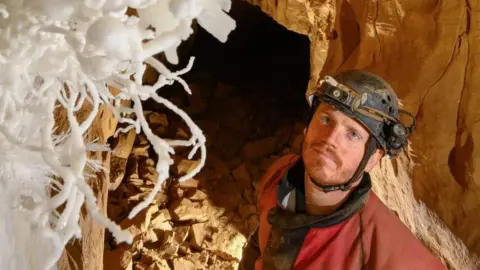 Mark Burkey
Mark BurkeyThe injured caver stranded underground for more than two days while 300 volunteers tried to get him to safety was fit, experienced and not frightened, said a rescue expert.
George Linnane, 38, fell while caving in the Brecon Beacons on Saturday.
Volunteers from across the UK came together to help before he was carried up after 54 hours on Monday evening.
Mr Linnane, who lives in Bristol, is in hospital, having broken a tibia, fibula, jaw, and with chest injuries.
He is being treated at the University Hospital of Wales, Cardiff and Vale health board confirmed.
The rescue was one of the UK's longest cave rescue operations after 300 volunteers came together from across the country to put their caving expertise to the test.
Martin Grass, chairman of Mendip Cave Rescue, said Mr Linnane was an experienced caver.
"He was fit, so he wasn't frightened of the cave environment, he knew what it was about and has probably been on cave rescues or certainly practice rescues and that would have all helped him.
"He knew he was in good hands and he knew a lot of the people."
Maxine Bateman, a friend of Mr Linnane who is originally from Southampton, was part of the first rescue mission in Ogof Ffynnon Ddu.
She told BBC Radio Bristol: "We received a text message on Saturday afternoon, when we came out of our own caving trip to say a rescue was taking place in south Wales and then a few personal messages came through to say who the casualty was and could we make our way up there so we did.
"It was incredibly organised, so many people came to help out and as people were arriving it transpired that the rescue was going to be a very long rescue and quite a serious undertaking."
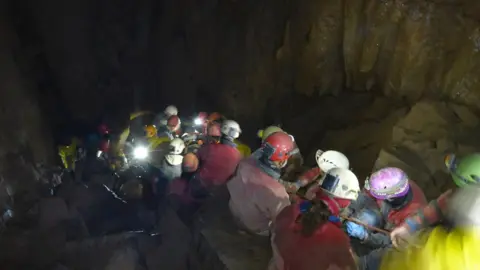 Mid and South Wales Cave Rescue Team
Mid and South Wales Cave Rescue TeamShe added that they were then organised to go into the caves in teams so they could work shifts in order to allow the rescuers not to get too tired.
"I initially went into the cave at 6am on Sunday morning for a 13-hour shift, carrying in rescue kit, then I moved on to the stretcher and then onto communications with the surface in order to give them updates as to how the casualty was doing and how the team was progressing - so quite busy really," she said.
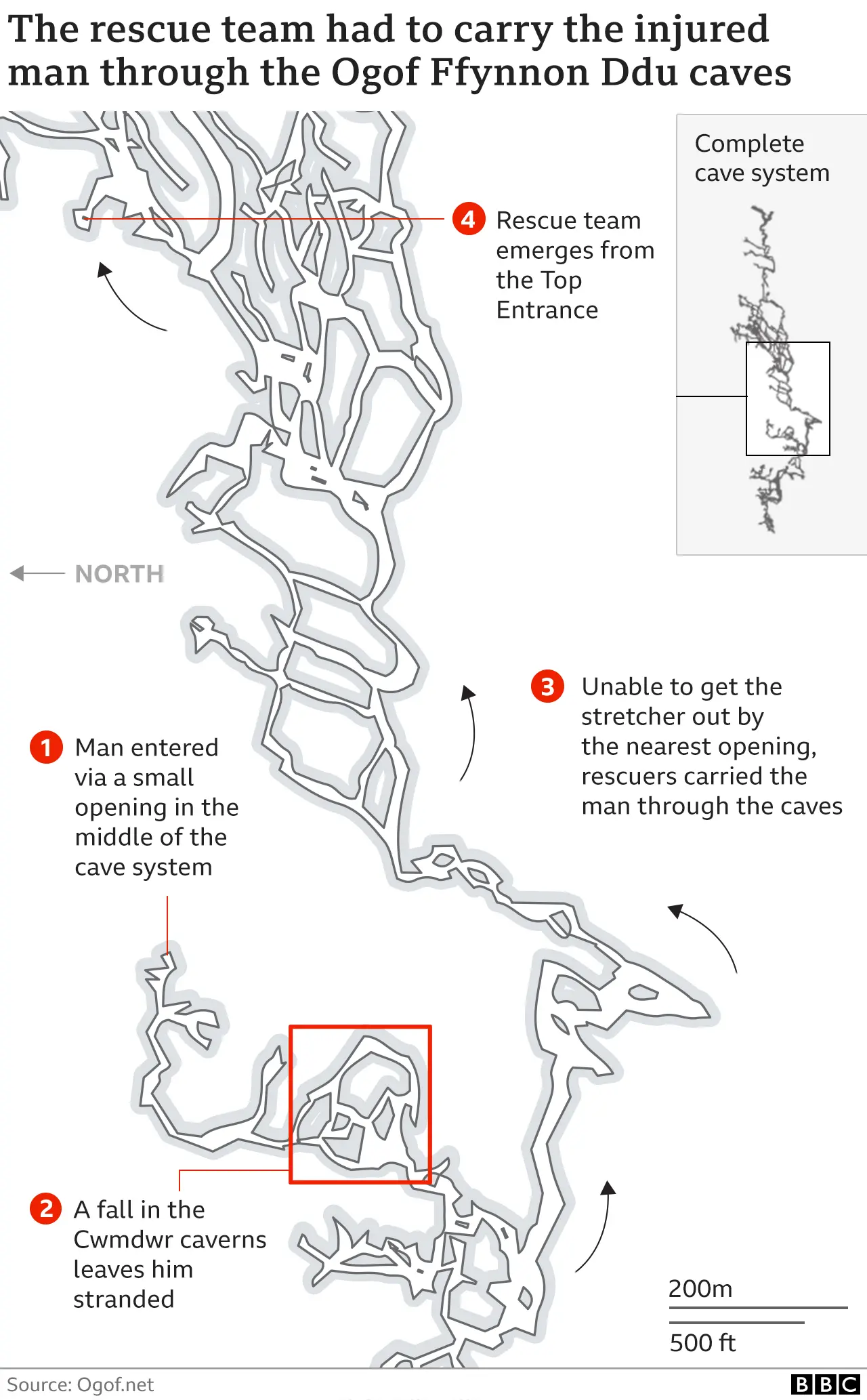
It took 16 cave rescue teams across England, Wales and Scotland coming together to make sure the rescue ended safely.
Another caver who was with Mr Linnane notified police about the incident at about 14:30 GMT on Saturday.
This was the longest cave rescue undertaken in Wales. Previously, the longest had been a 41-hour operation.
Foggy and wet conditions in the Brecon Beacons meant an air ambulance helicopter was unable to land.
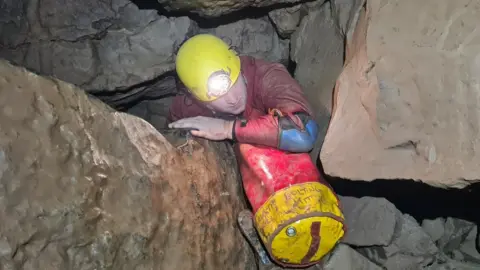 Mid and South Wales Cave Rescue Team
Mid and South Wales Cave Rescue Team'Feeling of relief'
Mr Linnane had to be moved on a stretcher by specialist crews working in shifts.
Ms Bateman said it was overwhelming when they finally got Mr Linnane to the entrance of the cave.
"I had moments when I was able to hold his hand, talk to him and it was quite special to feel him squeeze my hand and know that he knew we were there for him.
"That feeling of relief when he came out of through the entrance and was handed over to the next team to take him to hospital," she said.
 Mark Burkey
Mark Burkey'Challenging'
The Ogof Ffynnon Ddu cave system is the second largest in Wales and one of the deepest in the UK.
The cave system is near Penwyllt, a small hamlet in the Swansea valley, in the county of Powys.
It is about 902ft (275m) at its deepest point and is Britain's third longest cave.
The caves were discovered by the South Wales Caving Club in 1946, according to Natural Resources Wales, and contain a number of underground streams and waterfalls.
They can only be accessed by cavers with a permit from the caving club.
Due to the size and very technical nature of the cave complex, it is challenging even for experienced cavers.
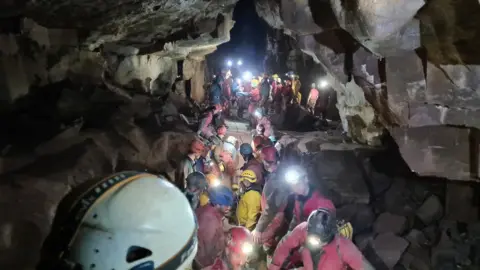 South and Mid Wales Cave Rescue Team
South and Mid Wales Cave Rescue Team